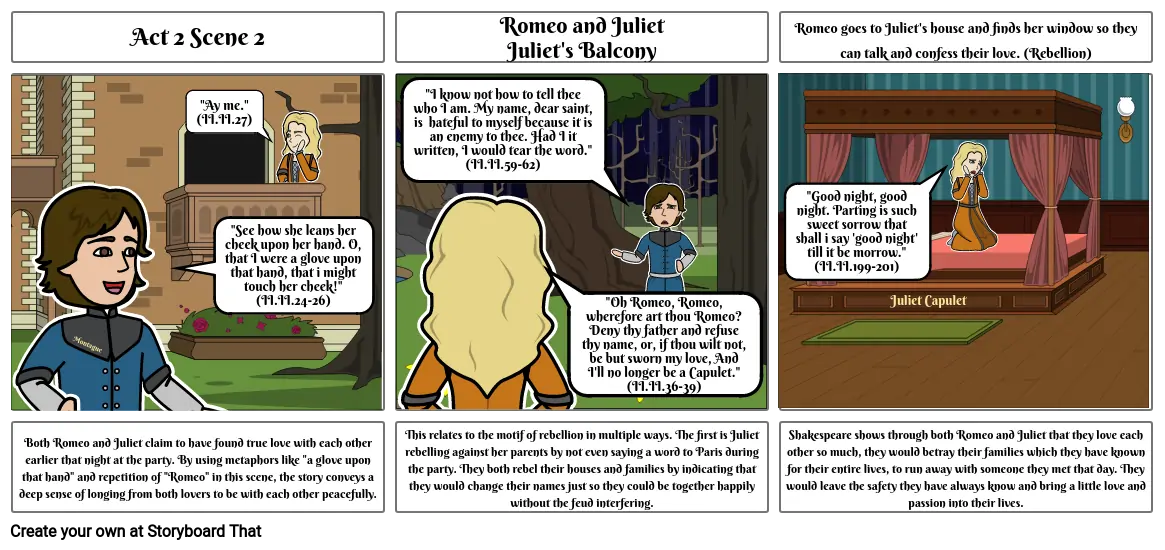Romeo and Juliet Storyborad Project

Storyboard Description
Due next class
Storyboard Text
- Act 2 Scene 2
- Montague
- "See how she leans her cheek upon her hand. O, that I were a glove upon that hand, that i might touch her cheek!" (II.II.24-26)
- "Ay me." (II.II.27)
- Romeo and JulietJuliet's Balcony
- "I know not how to tell thee who I am. My name, dear saint, is hateful to myself because it is an enemy to thee. Had I it written, I would tear the word."(II.II.59-62)
- "Oh Romeo, Romeo, wherefore art thou Romeo? Deny thy father and refuse thy name, or, if thou wilt not, be but sworn my love, And I'll no longer be a Capulet." (II.II.36-39)
- Romeo goes to Juliet's house and finds her window so they can talk and confess their love. (Rebellion)
- "Good night, good night. Parting is such sweet sorrow that shall i say 'good night' till it be morrow." (II.II.199-201)
- Juliet Capulet
- Both Romeo and Juliet claim to have found true love with each other earlier that night at the party. By using metaphors like "a glove upon that hand" and repetition of "Romeo" in this scene, the story conveys a deep sense of longing from both lovers to be with each other peacefully.
- This relates to the motif of rebellion in multiple ways. The first is Juliet rebelling against her parents by not even saying a word to Paris during the party. They both rebel their houses and families by indicating that they would change their names just so they could be together happily without the feud interfering.
- Shakespeare shows through both Romeo and Juliet that they love each other so much, they would betray their families which they have known for their entire lives, to run away with someone they met that day. They would leave the safety they have always know and bring a little love and passion into their lives.
Over 30 Million Storyboards Created

